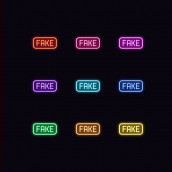After its patent rights expired, the owners of the iconic Rubik’s Cube attempted to use trademark registrations to extend its protection. After decades of disputes, its black and white trademark and now its colour trademark have been found invalid, as Volha Parfenchyk explains.
EU General Court rules in latest Rubik’s Cube case
How distinct are the retail services of shops that offer only one brand's products (such as flagship stores) from those that sell products from multiple brands (such as department stores)? This was the question at the heart of the recent Rituals trademark class decision at the CJEU, as Sven Valstar explains.
Rituals and trademark class 35: Are retail brands no longer at risk in the EU?
The recent dispute over the Decathlon 'Easybreath' mask offers helpful clarity about the protection provided by EU design rights, says Florence Chapin. She dives into the ruling and the key takeaways for innovators.
EU General Court offers lifeline to Decathlon in Easybreath mask design ruling
Can a product which is marketed but not reproducible/analysable be considered prior art? This is the question at the heart of the decision in G 1/23, says Philippe Vigand. He explains the implications of the Enlarged Board of Appeal’s findings.
G 1/23: Does a technological black box constitute prior art in European patent law?
The rapid dissemination of AI-generated images in the style of the famous Japanese Studio Ghibli on social media will probably not have escaped your attention. This new trend raises some important legal and ethical questions about generative AI and copyright, as Gaëlle Andrieu explores.
Generative AI and copyright: The Studio Ghibli effect
Should ‘applied art’, such as furniture or modular design systems, be subject to a stricter test of originality in copyright law than other works, such as paintings or novels?
Applied art and copyright protection in the EU
At a time when climate and environmental issues are more important than ever, it is reasonable to look to technological innovation for at least part of the solution. Martin Chaumont explains the critical role of the patent system in protecting, promoting and financing 'green' technology innovations.
Green technology innovations: Patents and the ecological transition
With 24 official languages and three official alphabets, considering linguistic diversity within the EU can be a real headache when assessing the risk of trademark confusion, as Louise Péchoux discusses in the context of the recent ruling on the Schweppes May Tea trademark by the EU General Court.
Schweppes saves May Tea trademark from Cyrillic challenge
Watch the webinar recording to discover how to effectively protect your brands and consumers from online scams on social media platforms and e-commerce sites.
[Webinar] How to protect your brands on social media and e-commerce sites
The '2024 Review of Notorious Markets for Counterfeiting and Piracy' by the US Trade Representative (USTR) reveals some positive developments in anti-counterfeiting by e-marketplaces but an alarming rise in the sale of counterfeit medicines by illegal online pharmacies.
The worst e-commerce sites for counterfeit products online
In today’s global marketplace, protecting your brand across borders is more complex than ever, especially when it comes to opposition, cancellation and board procedures. By leveraging local expertise and cutting-edge technology, you can power your global brand protection strategy.
A global brand protection toolkit: Local expertise supported by cutting-edge technology
The EU Artificial Intelligence Act (EU AI Act) establishes the first-ever horizontal regulatory framework dedicated to AI within the European Union. Catherine Caspar outlines the purpose and parameters of the ambitious regulation.
The EU AI Act: A new legal framework for ethical, safe and innovative use of artificial intelligence











